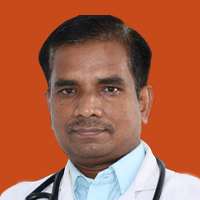

Successful Treatments
Clinics
Doctors
What is Mumps
Mumps is caused by a virus and it affects the glands on each side of the face. These saliva making glands (parotid glands) become swollen and become tender or painful.
There are three pairs of salivary glands - parotid, sublingual and submandibular, with each gland having its own tube which leads from the gland to the mouth.
Causes of Mumps
Mumps is a viral disease, and the virus is present in the infected person’s saliva. Coughing and sneezing can release the virus into the air. A healthy person can get infected by breathing in these tiny droplets. They can also get infected by touching a surface where droplets have landed and touching your face. THe virus can also be picked up from direct contact, like kissing or sharing a water bottle.
Signs and Symptoms of Mumps
Symptoms usually show up about 2 -3 weeks after getting exposed to the virus.
Symptoms
Fever
Due to the immune system’s reaction to fight the virus, fever can happen during this disease
Headache
This is a common symptom of mumps and mostly happens as a side effect of fever
Muscle aches or pain
As the body fight against the virus, body aches and pain is a common symptom
Not wanting to eat
loss of appetite can happen due to swollen of glands which can make eating feel painful
Tiredness
The viral infection can take a toll on the body, causing tiredness for the infected person
Later Symptoms (when salivary glands start to swell)
- Swelling of one or both glands at the sides of the face
- Pain or tenderness around the swollen area
- Swelling of glands below floor of the mouth is also possible
Do you have any of the following symptoms?
- Fever
- Headache
- Muscle aches or pains
- Not wanting to eat
- Swelling
- Swelling of one or both glands at the sides of the face
- Pain or tenderness around the swollen area
- Swelling of glands below floor of mouth
Complications of Mumps
Swollen testicles (orchitis): this is more common with mumps infection after puberty, Swollen testicles can lead to decrease in testicle size and decline in fertility. It causes severe pain
Swollen ovaries (oophoritis): Also called oophoritis, this complication causes pain, upset stomach, vomit and fever. This complication is more likely after puberty and doesn’t seem to affect fertility
Encephalitis: this complication can cause change in consciousness, seizure and important
Meningitis: It is a swelling or inflammation of the membranes around the brain and spinal cord. It may cause head, fever and neck stiffness
Hearing Loss: this can happen suddenly or over time, and usually gets better after the illness
Pancreatitis: mumps can damage the pancreas from swelling (pancreatitis). Symptoms include pain or tenderness near stomach, upset stomach, vomiting and fever
Miscarriage: getting this disease during the first 12 weeks of pregnancy may increase the risk of miscarriage
How to Prevent Mumps
Getting the vaccination is the best way to prevent mumps. The mumps vaccine is part of the recommended childhood vaccinations and is usually given as a combined measles-mumps-rubella (MMR) vaccine.
The 1st dose is given between 12-15 months of age and the 2nd dose is given between the ages of 4-6 years before entering school.
Jiva Ayunique™ Treatment Philosophy - A Holistic Approach to Mumps
Jiva Ayurveda offers holistic and personalised Ayurvedic treatment of Mumps using evidence-based Ayurveda. The treatment plans are customised to target the root causes of the disease, and instead of just treating symptoms, they focus on holistic healing, balance and stability in totality.
Core Principles of the Jiva Ayunique™ Treatment Philosophy
Dietary Adjustments: Soft and liquid foods should be consumed. Rice water is also beneficial. Acidic, oily and pungent foods should be avoided.
External Therapy: Lepa of datura leaves can help relieve swelling and pain.
HACCP Certified Ayurvedic Medicines: Scientifically-formulated mixtures that help restore balance in the body and maintain emotional stability.
Ayurvedic Medicine for Mumps
Ayurveda is India’s traditional system of medicine which includes the usage of herbs for rebalancing the energies in the body and improving overall health. In cases of diseases such as Mumps, specific Ayurvedic medicines are used which concentrate on improving bone density and contributing towards better bone health. Listed below are a few recommended Ayurvedic herbs which can help in managing Mumps:
Neem leaves: this reduces itching and can be mixed with turmeric to form a paste which can be applied to the swollen area
Guduchi: its anti-inflammatory and pain relieving qualities help in the management of mumps
Haridra: its anti-inflammatory power and potent antioxidants give relief and provide a boost to the immune system
Frequently Asked Questions (FAQs)
What is the effectiveness of the mumps vaccine?
The mumps vaccine is 86% effective after two doses and 72% effective after one dose.
What is the incubation period of mumps?
The incubation period of mumps is usually 16 to 18 days, but can range from 12 to 25 days.
How are mumps diagnosed?
Doctors can diagnose mumps by swelling of the salivary glands. If glands are not swollen and the doctor suspects mumps based on other symptoms, a throat culture is taken and tested for mumps.
What are some home remedies for mumps?
Ginger, aloe vera, fenugreek seeds, neem leaves as well as warm or cold compress can help taking care of mumps at home.
What is the recovery time for mumps?
Most people recover from mumps within 2 weeks.
Is there a quick cure for mumps?
Since mumps is a viral disease, there is no cure as such. Treatment only helps in managing symptoms and providing relief to the infected person.
Top Ayurveda Doctors
Our Happy Patients
Home Remedies
- कैविटी और दाँतों की सड़न के लिए आयुर्वेदिक इलाज – बिना दर्द राहत पाएं
- आँखों में जलन या ड्राईनेस का आयुर्वेदिक इलाज - मुफ़्त परामर्श
- कान दर्द का घरेलू इलाज | आयुर्वेदिक नुस्खे जो तुरंत असर करें
- गले में दर्द और खराश? ये घरेलू नुस्खे देंगे तुरंत आराम
- Home Remedies for Tonsils
- Home Remedies for Throat Infection
- Home Remedies for Dry Eyes
- Home Remedies for Ear Pain
Related Disease
- Ayurvedic Treatment for Cataract
- Ayurvedic Treatment for Conjunctivitis
- Ayurvedic Treatment for Epistaxis
- Ayurvedic Treatment for Tonsillitis
- Ayurvedic Treatment for Stye
- Ayurvedic Treatment for Glaucoma
- Ayurvedic Treatment for Colloid Goitre
- Ayurvedic Treatment for Myopia
- Hearing Loss Treatment in Ayurveda
- Ayurvedic Treatment for Halitosis
- Ayurvedic Treatment for Pyorrhoea
- Ayurvedic Treatment for Tinnitus
- Ayurvedic Treatment for Dysphagia
- Ayurvedic Treatment for Presbyopia
- Ayurvedic Treatment for Astigmatism
- Ayurvedic Treatment for Nasal Polyps
- Ayurvedic Treatment for Adenoids
- Ayurvedic Treatment for Mumps
- Get Ayurvedic Treatment for Pharyngitis
Latest Blogs
- Surgery के बाद कमज़ोरी, Dopamine कम और Immunity गिर गई थी—Ayurveda ने कैसे फिर से ताकत दी
- 85 से 115 KG तक अचानक बढ़ा वज़न—Thyroid, Fatty Liver और Kidney Stone में Ayurveda ने कैसे संभाली हालत
- PCOD Success Story: जब दवाइयाँ काम न करें, Ayurveda दिखाता है असली रास्ता
- लंबे समय तक बैठकर काम करने से बढ़ा Lower Back Pain—10 दिन के Panchakarma ने कैसे दिया आराम
- सालों की Acidity, Gas और Joint Pain—Ayurveda ने 3 महीनों में कैसे दी राहत
- Knee Replacement से पहले रुकिए! Ayurveda ने कैसे रोका Operation और दिया प्राकृतिक राहत
- गंभीर Jaundice के बाद शुरू हुआ तेज़ Joint Pain—Ayurveda ने सिर्फ 4 महीनों में कैसे दी राहत
- Skin Allergy और Fungal Infection ने रातों की नींद छीन ली थी—Ayurveda ने कैसे दी गहरी राहत
- बार-बार होने वाली खाँसी, ज़ुकाम और साँस की दिक्कत—Ayurveda ने कैसे तोड़ी ये Chronic Cycle
- 10.6 से 6.2 तक की गिरावट—Ayurveda ने Diabetes Management में कैसे दिखाई ताकत
- Disk Bulge की वजह से चलना बंद हो गया था—Ayurveda ने कैसे दोबारा खड़ा होने की ताकत दी
- High Diabetes रिपोर्ट ने डरा दिया था—Ayurveda ने बिना आजीवन औषधियाँ के दिखाया नया रास्ता
- 65 की उम्र में भी नींद नहीं आती थी—जीवा आयुर्वेद की Video Consultation ने कैसे दी सुकूनभरी नींद
- Migraine ने पढ़ाई और काम दोनों रोक दिए थे—Personalised Ayurvedic Treatment ने कैसे बदली ज़िंदगी
- खड़े रहना मुश्किल, हाथ सुन्न, लगातार दर्द—Ayurveda ने कैसे बदली Arthritis की कहानी
- 28-Year-Old की Struggle: Skin Problems से लेकर Psoriasis Relief तक की Ayurvedic Journey
- 100 दिनों में Diabetes Reverse! Ayurveda ने कैसे 8.5 से 5.5 तक गिराया HbA1c
- सालों पुराने Knee Pain में Painkillers भी हार गए—Ayurveda ने कैसे दिलाया सच्चा आराम
- 74 साल की उम्र में भी Osteoporosis Pain से मिली राहत—Ayurveda ने कैसे बदली ज़िंदगी
- जब चलना मुश्किल हो जाए और डॉक्टर Operation कहें—Jivagram का Ayurveda कैसे बदल देता है ज़िंदगी
Ayurvedic Doctor In Top Cities
- Ayurvedic Doctors in Bangalore
- Ayurvedic Doctors in Pune
- Ayurvedic Doctors in Delhi
- Ayurvedic Doctors in Hyderabad
- Ayurvedic Doctors in Indore
- Ayurvedic Doctors in Mumbai
- Ayurvedic Doctors in Lucknow
- Ayurvedic Doctors in Kolkata
- Ayurvedic Doctors in Patna
- Ayurvedic Doctors in Vadodara
- Ayurvedic Doctors in Ahmedabad
- Ayurvedic Doctors in Chandigarh
- Ayurvedic Doctors in Gurugaon
- Ayurvedic Doctors in Jaipur
- Ayurvedic Doctors in Kanpur
- Ayurvedic Doctors in Noida
- Ayurvedic Doctors in Ranchi
- Ayurvedic Doctors in Bhopal
- Ayurvedic Doctors in Ludhiana
- Ayurvedic Doctors in Dehradun






















